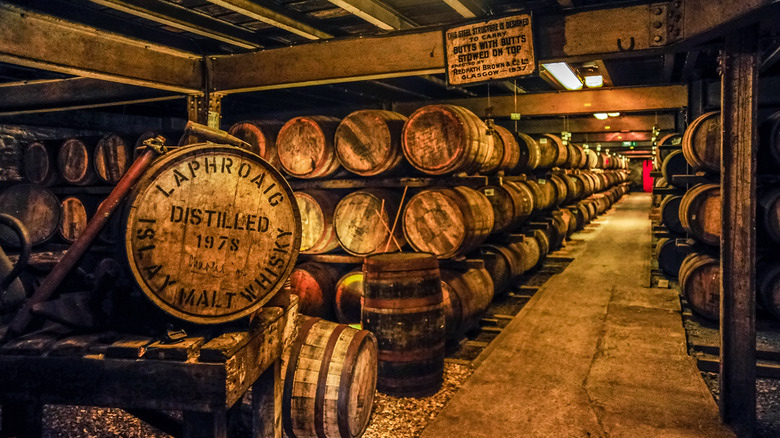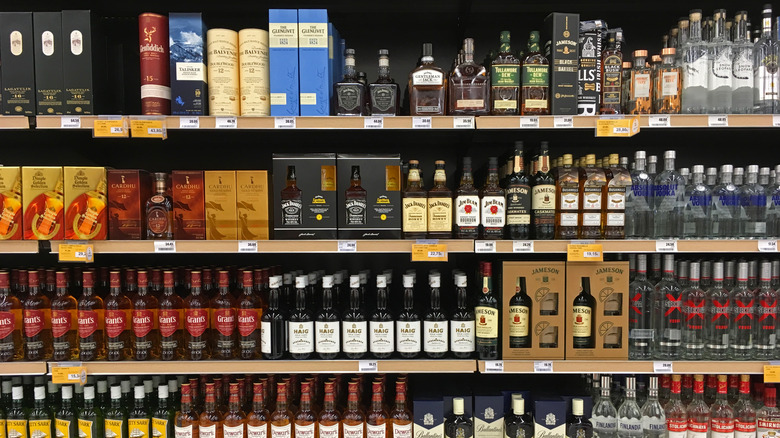Why Do We Even Age Liquor In The First Place?
When it comes to judging liquor quality, most people just check how long it's been aged. Even if you're not a liquor expert, you probably know that the longer a spirit ages, the pricier and tastier it's supposed to be. The truth is a bit more complicated than that, but in general, it's true: longer aging usually means more complex flavors.
Many types of liquor, such as tequila and whiskey, are put into wooden barrels after they're made. As these fresh spirits sit inside those barrels, they go through changes in taste, smell, and even appearance. The wood mellows out the alcohol's harshness and adds extra flavorings (or "tasting notes"), depending on the kind of wood in the barrel. Most barrels are made of oak, which gives the liquor a taste of caramel, vanilla, and a hint of wood. But if they use other woods, the notes will also change. For example, cherry wood will make the liquor sweeter. Besides flavor, the wood also changes the liquor's color. Whiskey, for example, starts clear-colored (that's why they call it "white dog") and turns into a nice amber color as it ages. The same happens with rum (with white rum being less aged) and tequila (with blanco tequila being under-aged as well).
Aging is also a legal mandate for a lot of spirits. Take straight bourbon, for instance. According to the American Bourbon Association, it has to age for at least two years to be called "bourbon." And if it's bottled-in-bond bourbon, it needs to age for at least four years!
What does this mean for you as a consumer?
While the maturation of liquor often suggests it's top-notch, it's not always true that older means better. Especially in the world of spirits like rum and bourbon where the age of the liquor is often taken very seriously. The number on the label is just one part of the story and doesn't guarantee great taste. Contrary to popular belief, old liquors can sometimes disappoint.
Here's the deal: there's a sweet spot in aging liquor. Go beyond that, and the spirit can soak up too much wood flavor, making it overly woody and masking its unique character. It's the reason why you won't find a lot of bourbons on the market that are aged for longer than 15 years — pass that point, and the risk of it tasting terrible increases substantially. Distilleries always keep a close eye on the aging process, regularly testing barrels to make sure this point is never exceeded. When they hit that sweet spot, the liquor is extracted from the wood barrel immediately to preserve its taste.
So, when you're picking out liquor, don't rely solely on the age number on the label to judge quality. Consider other things like the proof, the distilling ingredients, the actual distillation process, the brand's reputation, the price, and so on. It's why buying a great bottle of liquor has been likened to an art ... there's a lot more to it than that big number on the front!

